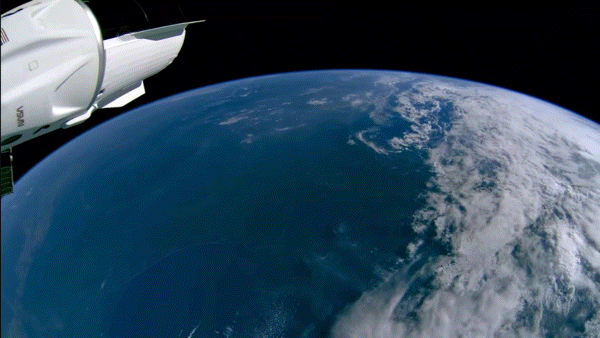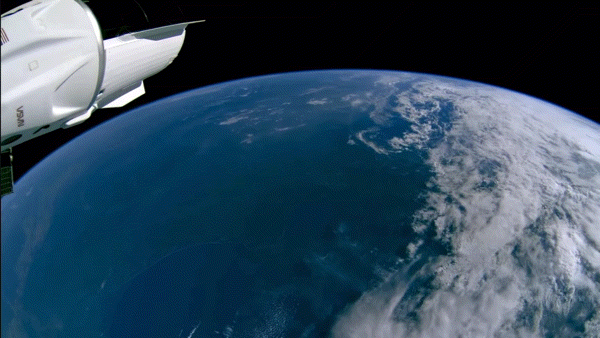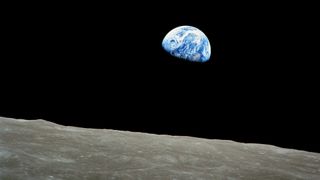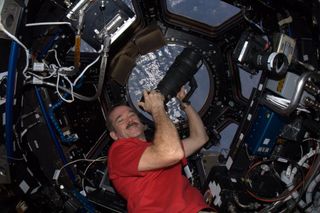

Charles Black is the Founder and CEO of Sen.
Gazing at our planet from the vantage point of space alters one’s perspective on life on Earth, instilling a profound understanding that can transform thoughts and actions.
Viewing Earth from space has traditionally been an experience reserved for a limited number of astronauts—approximately 700 individuals have witnessed our planet from above since Yuri Gagarin’s monumental flight on April 12, 1961. The feelings and reflections that arise from seeing the Earth from such heights are personal and varied, yet the universal result is a profound reevaluation of how we perceive our world and our lives within it.

Frank White, a notable author and space philosopher, coined the term “The Overview Effect” to articulate the cognitive transformation that astronauts undergo upon witnessing our planet from space.
In his own words, White states: “Since releasing my book, ‘The Overview Effect: Space Exploration and Human Evolution,’ in 1987, many have suggested that someone should deploy a camera in orbit to stream images of the Earth back to us, allowing everyone to experience this effect consistently.”
“I would always agree that it was a brilliant idea, but I hadn’t anticipated taking on such an endeavor myself.” Thanks to Sen, this vision is now realized—a significant milestone. While a video cannot fully replicate the Overview Effect, we must utilize every possible resource to convey that Earth is a unified entity, where all elements are linked and interdependent. I stand firmly behind Sen’s efforts and eagerly await a future where no one will ask, ‘Wouldn’t it be great if someone put a camera in orbit?’ Because now, it’s a reality!”
The Overview Effect represents a pivotal shift in how those casting their gaze back at Earth from space interpret their existence. Imagine the influence it could wield if everyone, beyond just astronauts, could experience this view of Earth. This is a key motivation behind the establishment of Sen, which aims to provide individuals with real-time, ultra-high-definition perspectives of Earth, enabling billions to perceive their home in the same light as astronauts do and to experience the Overview Effect.

While observing Earth through a continuous livestream cannot replicate the firsthand experience that astronauts enjoy, it remains a significant and engaging form of perspective. Much like watching a favorite sports team on television evokes the same excitement as being present at a live game, yet with unique angles provided by televised broadcasts, the essence of the experience remains consistent. Photography captures the passion and narrative, regardless of whether it’s live or recorded; you simply engage with the art through different avenues.
Viewing Earth from space—knowing it’s happening in real-time—allows billions to partake in the Overview Effect—or an equivalent version of it, enhancing connection to their home planet.
Experiencing the fragility and awe of Earth might foster a deeper appreciation for environmental stewardship. Those conscious of climate change may feel an increased urgency, while skeptics may gain awareness of its tangible impacts affecting communities globally. The truth emerges clearly from space: natural disasters discriminate against no one, making collective action against climate change paramount.
Chris Hadfield, a veteran astronaut who commanded the ISS during multiple missions, captured the essence of the Overview Effect perfectly:
“Our principal responsibility is to care for one another and the world we inhabit while acknowledging the extraordinary luck of existing on this magnificent planet. Humanity is the most intelligent species recorded in history. We must embrace the responsibility of stewardship for our only home.”

Observing Earth from the vastness of space reveals the interconnectedness of our existence on a shared planet. This perspective emphasizes that we all share the same space—a shared world rich with the potential for life. It’s a collective responsibility for everyone—including future generations—to care for our planet, rather than treating it as mere property. I genuinely believe that this unique spatial perspective can unite humanity, portraying the narrative of Earth and our exploratory missions in space as collective tales that pertain to us all.
We must all be vigilant caretakers of our planet and recognize that we are temporary stewards for those who will come after us. As retired NASA astronaut Nicole Stott aptly puts it, “We’re crewmates, not passengers” on our spaceship, Earth. Right now, we are traveling through the cosmos on this exquisite planet teeming with life and diverse ecosystems.
Viewing Earth from above has the potential to spark global change by transforming individuals’ perceptions into actionable insights. This highlights the importance of a continuous livestream from space, which conveys the narrative of planetary shifts, raises awareness of the climate crisis, and hopefully inspires people to take meaningful action. The will of the people can influence political decisions and corporate behaviors.
Equally relevant is the need to witness the authentic images of Earth from space. Sen aims to provide these genuine, real-time views. As AI-generated visuals grow increasingly sophisticated, distinguishing between what’s real and what’s artificial becomes more challenging. Capturing real-time glimpses of Earth transitioning from day to night offers a constant reminder of our planet’s dynamic nature—a dose of reality amid fluctuating geopolitics.
Sen’s mission is to democratize access to space through video, aiming to inform, educate, and inspire all of humanity by showcasing the ongoing exploration of space and the narrative of planetary change.
Currently, Sen operates a satellite in orbit, with plans for additional satellites to create a comprehensive constellation. We are also working on sending cameras into deep space for further insights into Earth, the Moon, and eventually Mars. Sen’s “SpaceTV-1” mission, developed for the International Space Station, will livestream Earth in 4K, granting everyone breathtaking views of our planet as seen from space. The system will also incorporate the real-time overlay of mapping information, allowing viewers to instantly recognize the regions they are observing.
I encourage everyone to embrace the opportunity to see Earth from space via Sen.com and on YouTube.com/sen. Additionally, you can download our app for iOS devices. It’s free for all users, so take a moment to witness Earth live and explore a fresh perspective on our shared home—an unfolding narrative about humanity bound to ignite our collective sense of responsibility for the future.









